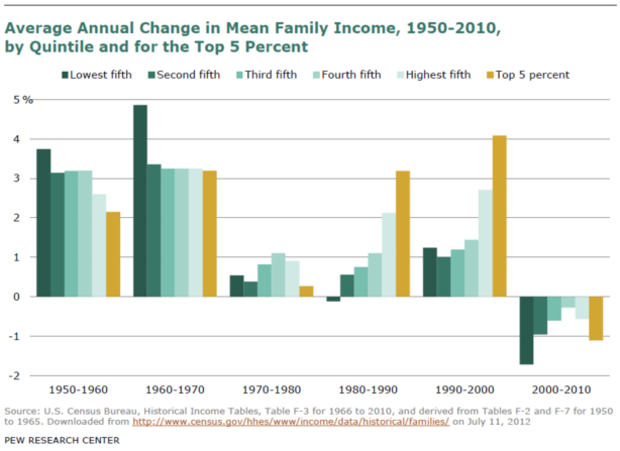August jobs report disappoints
(MoneyWatch) The U.S. economy added only 96,000 in jobs in August and the unemployment rate edged lower to 8.1 percent, from 8.3 percent. The report was disappointing for two reasons: Job creation was lower than expected and the unemployment rate dropped only because eligible workers left the labor force.
Coming on the heels of the two major parties' conventions, the political stakes are high when it comes to jobs. Poll after poll show that voters are most concerned with the economy and the jobs markets and there are only two more monthly Labor Department reports due before the general election.
No president since the Great Depression has won re-election when the jobless rate was higher than 7.4 percent, the level at which Ronald Reagan won a landslide reelection in 1984. Given the current pace of job creation this year (139,000 jobs per month), the unemployment rate will likely remain above 8 percent by Election Day and probably by the end of the year as well.
During the past two weeks, the parties have released dueling narratives of the jobs situation: Republicans claim that progress is too slow and Democrats say that while the improvement may not be ideal, the damage was too vast to be repaired in a normal time frame. Who's right?
There is no doubt that the country has seen gains in the jobs crisis: The economy has added 3.8 million jobs since employment bottomed in February 2010. (4.3 million private jobs created were offset by just over a half a million government jobs lost). But the hole is deep: There are still 4.8 million fewer total non-farm jobs since before the recession started.
It's the same story with the unemployment rate: It's down from over 10 percent only a couple years ago, but has remained above 8 percent for over three years, the longest stretch since monthly records began in 1948. Just before the beginning of the recession, the rate was 5 percent and at the current rate of job creation, it will take approximately 3 to 4 years to return to that level.
The problem continues to be the tepid pace of economic growth (1.85 percent in the first half of the year and 1.7 percent in 2011), which has been too slow to prompt companies to hire. Economists say that the economy needs to grow by closer to 2.5 to 3 percent to put more people back to work.
Beyond the raw numbers on job creation and unemployment rate, another insidious problem is infecting the U.S. labor market: Middle class wages are shrinking. The Pew Research Center recently released a report called "The Lost Decade of the Middle Class." Pew's definition of middle class is households with annual earnings ranging from $39,000 to $118,000 in 2011 dollars. In 2011, this middle-income tier included 51 percent of all adults, a drop from 61 percent in 1971.
Jobs report: Economy added 96K jobs in August
Middle-class income shrinks
New jobs offer lower wages
The news for the group is sobering: For the first time since 1945, incomes have gone backward (from $72,956 to $69,487, a 5 percent drop) and total wealth (assets minus debt) dropped by 28 percent, to $93,150 from $129,582. During this period, the median wealth of the upper-income tier was essentially unchanged -- it rose by 1 percent, to $574,788 from $569,905.
As CBS MoneyWatch's Alain Sherter recently noted, the last decade is a continuation of a longer term trend. "Income for the average middle-class family has stagnated for decades, with the financial crisis precipitating a sharp decline." It's tough to pin on a multi-decade trend on one party, though. The culprit is more likely a combination of two larger issues: Globalization and technology. Of course that might make for a pretty boring campaign speech or TV ad.
August jobs:-- Jobs created: 96,000 (July: +141,000 from +163K, June: +45K from +64K. Total revisions: -41K)
-- Average monthly job creation 2012: 139,000
-- Private jobs created: +103K
-- Government jobs created/lost: -7K
-- Unemployment rate: 8.1% (from 8.3%)
-- Broad unemployment rate: 14.7% (official rate + "marginally attached workers," those who are neither working nor looking for work, but say they want a job and have looked for work recently; and people who are employed part-time for economic reasons, meaning they want full-time work but took a part-time schedule instead because that's all they could find.)
-- Total unemployed: 12.5 million (from 12.8 million)
-- Long-term unemployed: 5 million, representing 40 percent of the total unemployed
-- Participation rate: 63.5% (worst level in 30 years - participation rate was 66% for many years ahead of the recession)
-- Average work week: 34.4 (unchanged)
-- Hourly earnings: $23.52 (up 1.7% over year)

